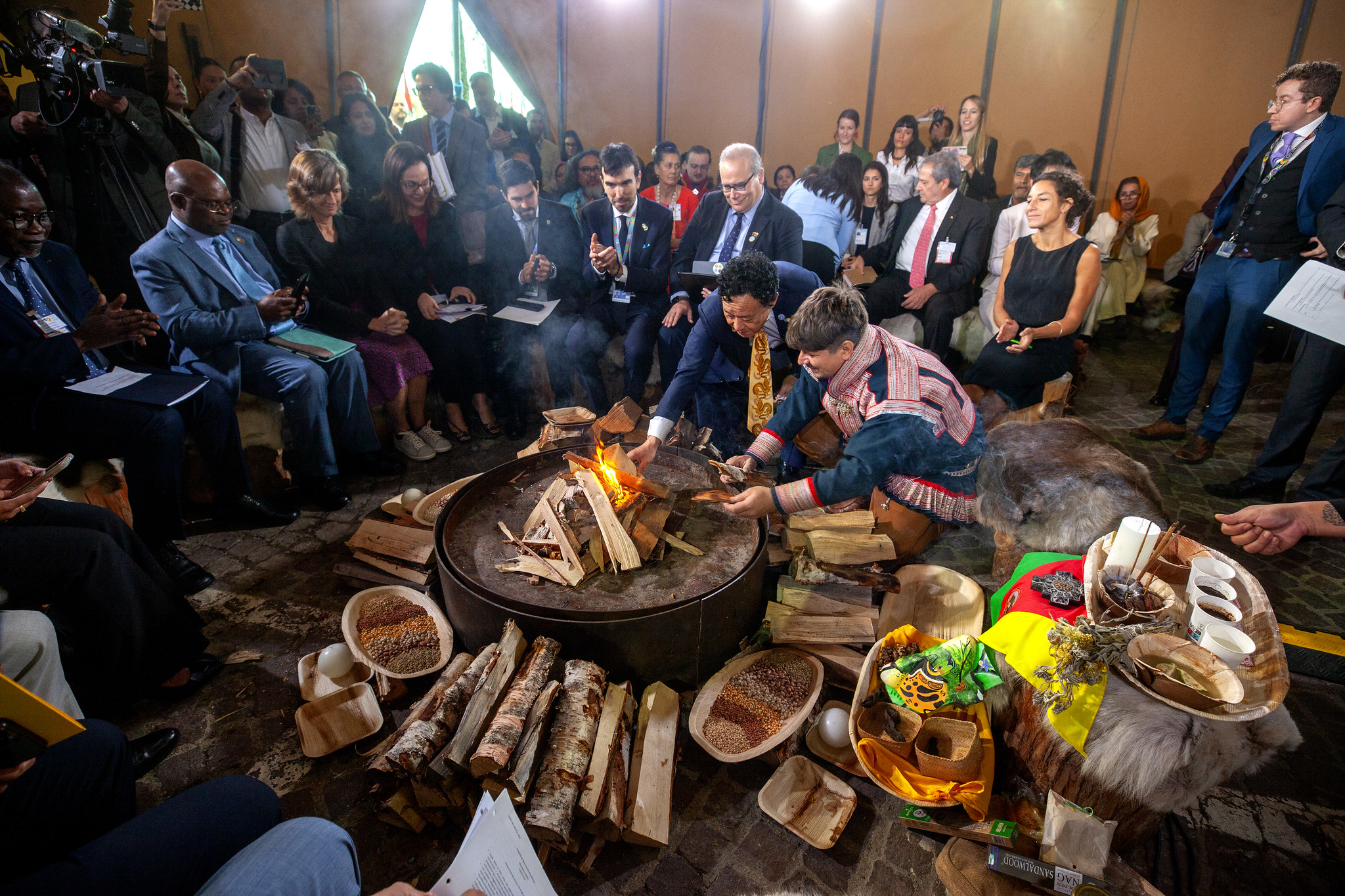Knowledge and tradition coalesce at the Global-Hub on Indigenous Peoples’ Food Systems
Source and photo: fao.org
October 14-18, 2024: FAO hosted week-long event in Rome highlighting the importance of Indigenous Peoples in co-creating knowledge for a better future
The opening of the Global-Hub on Indigenous Peoples’ Food Systems in Rome brought together Indigenous and non-Indigenous experts to highlight the value of Indigenous knowledge in sustainable food systems. Hosted by the FAO and symbolized by a traditional Saami tent, this event aligns with World Food Day and underscores the need to integrate Indigenous knowledge—often undervalued by the scientific and policy communities—into global solutions for sustainability and climate challenges.
FAO Director-General QU Dongyu welcomed the diverse gathering, expressing gratitude to Norway and the Saami for their support. He emphasized learning from Indigenous practices that balance nature with food security. This week, the Global-Hub will host discussions involving 50 experts, half of whom are Indigenous, from various universities and organizations, aiming to embed Indigenous knowledge into policy spaces and global awareness
FAO’s work with Indigenous Peoples
FAO celebrates the 10th anniversary of its Indigenous Peoples Unit, marking a decade of partnership with Indigenous communities to advance recognition of their knowledge systems and rights. As the UN’s lead agency for Indigenous food and knowledge systems, FAO also hosts the Secretariat of the Global-Hub, which in 2021 produced the influential Wiphala Paper for the UN Food Systems Summit.
This year’s Global-Hub meeting is part of preparations for the 2025 UN Global Indigenous Youth Forum, which will address Indigenous Youth priorities worldwide. FAO also anticipates opening a digital Food and Agriculture Museum in 2025 for its 80th anniversary, designed to honor traditional knowledge alongside agricultural innovation, women’s contributions, and Indigenous roles in sustainability
Topics, themes and traditions
ICR/WRH NOMAD Indigenous FoodLab hosted technical sessions and activities aimed at advocating a wide range of topics, including the need to protect Indigenous Peoples from violence, the impacts of ultra-processed foods and the energy transition, and promoting the Indigenous Peoples’ biocentric restoration approach. Indigenous Peoples should be properly involved in the implementation of international commitments on the Convention on Biological Diversity (CBD), the UN Framework Convention on Climate Change (UNFCCC) and the UN Convention to Combat Desertification (UNCCD), as they are gamechangers in biodiversity conservation, climate change action, food security and nutrition.
Indigenous musicians and chefs from around the world are set to participate in the Global-Hub, sharing their gastronomic traditions, artistry and spiritual expressions, rooted in their food and knowledge systems and cosmogony. Seated around a burning hearth, Indigenous and non-Indigenous people will gather for storytelling, rituals, and the passing down of oral traditions during a series of Fire Talks at the Global-Hub, as well as Tent Talks, which will showcase presentations from world-class experts delivering insights on themes related to Indigenous Peoples’ views and considerations.
Read the full text here



